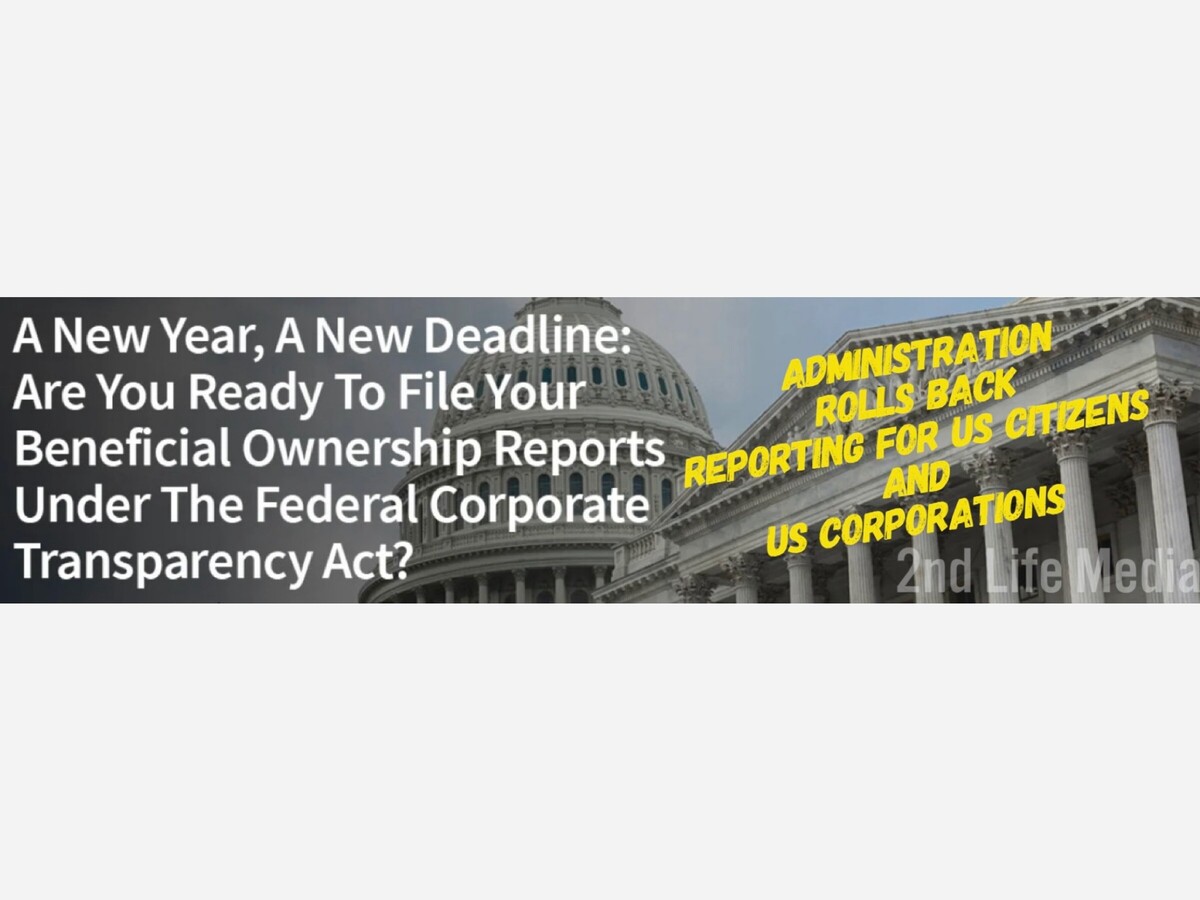Image


Rather a business on Alamogordo's Main Street of New York Avenue or Michigan Avenue's Magnificent Mile, Chicago; state and federal mandates stifle environments where businesses would otherwise thrive. Bureaucratic red tape tends to hit Main Street harder than Wall Street where real extreme levels of money flow.
Since the release of the U.S. Strategy on Countering Corruption, the U.S. Department of the Treasury redoubled its efforts to address the illicit finance and national security threats posed by corruption.
The Treasury Department was tasked with efforts to prioritize efforts to implement the Corporate Transparency Act (CTA) to prevent corrupt and other actors from laundering illicit funds through anonymous companies in the United States. This effort was to equip law enforcement and other partners with the information they need to disrupt financial anonymity that enables crimes such as corruption, drug trafficking, and terrorism
However, the act was overreach and was being used with the threat of significant fones and arrests against US Businesses and US citizens.
The Corporate Transparency Act of 2021 was a regulatory wreck buried inside a massive bill and enacted without much thought or basis. It was pitched to combat money laundering, tax fraud, and other financial crimes while increasing transparency around business ownership as per above.
The Beneficial Ownership Information reporting mandate created confusion for mom-and-pop businesses. This unnecessary regulation made them jump through hoops, like excessive paperwork, tracking down owner identification, and sharing massive amounts of personal information with the federal government.
Many small businesses made good-faith efforts to comply to avoid exorbitant fines and potential jail time. Meanwhile, bad actors simply found loopholes to bypass requirements.
Thankfully, the U.S. Treasury Department under the Trump Administration recently announced it will not enforce penalties or fines against U.S. citizens or domestic reporting companies related to the Corporate Transparency Act or the associated Beneficial Ownership Information mandate.
Many small businesses are facing pressures from inflation, supply chain issues delaying job launches and completion, overreaching other regulatory mandates and now extreme tariffs. Getting this regulatory train wreck off the tracks is a great victory for US small businesses from Alamogordo to Los Angeles.
Rules and regulations must be tailored to advance public interests while also ensuring businesses continue thriving. Roll back of regulations that place an unnecessary burden on small businesses need to be rolled back al all levels of government.
While we have questioned the approach to many policies and actions of the Trump administration this was a important first step in breathing life away from regulator overreach for small businesses in America.
The actual new guidance can be read below...
All entities created in the United States — including those previously known as “domestic reporting companies” — and their beneficial owners are now exempt from the requirement to report beneficial ownership information (BOI) to the Financial Crimes Enforcement Network (FinCEN) under the Corporate Transparency Act (CTA).
FinCEN published an interim final rule on March 26, 2025, that revised the definition of “reporting company” in its regulations implementing the CTA to mean only those entities formed under the law of a foreign country that have registered to do business in any U.S. State or tribal jurisdiction by the filing of a document with a secretary of state or similar office (formerly known as “foreign reporting companies”). FinCEN also formally exempted entities previously known as “domestic reporting companies” from the CTA’s reporting requirements.
Reporting companies now also do not need to report the BOI of any U.S. persons, and U.S. persons are exempt from having to provide BOI with respect to any reporting company for which they are a beneficial owner.
Foreign entities that meet the new definition of a “reporting company” and do not qualify for an exemption from the reporting requirements are required to file with FinCEN under new deadlines:
The guidance issued below has not yet been fully updated to account for this new interim final rule. Thus, any guidance here indicating that U.S companies, or their beneficial owners, must report BOI to FinCEN; that BOI must be reported for U.S. persons; or that reporting companies must report BOI before April 25, 2025, should be disregarded.